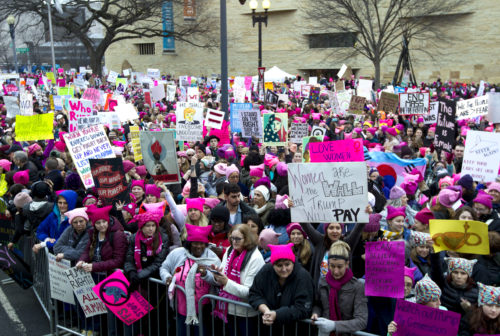-

Selling Feminism
“If corporate feminism is the end of feminism, then it is the end of a movement that has been ending for generations—and continues to thrive, most indebted to its harshest critics.”
-

New Year’s Eve
“I wonder if the beginning of dying is a little like the beginning of a dream”
-

-

Celebrating Carmen Carrera
Talking celebrity and transgender identity.
-

-

Weezer’s Summery Return
Having traded their 90s-style distortion and macho guitar riffs for piano and sad-boy vulnerability, Weezer is certainly stepping in a new direction.
-

Lyssna: A Review
The performance was viscerally compelling. Immersed in evolving harmonies and asymmetrical rhythms, I found myself transported to a space outside the predictable and rigid schedules of junior spring, of deadlines and word counts, into a rustic, sunlit world where patterns existed to be deconstructed and reformed.
-

What Does a Good Girl Look Like
Women, more than men, feel compelled to meet superhuman standards.
-

-

Two Voices in the Night
And as the yelling continued, it became clear to me that we had done nothing — nothing, that is, except for being female and alone on a Saturday night.
-

No Filter
There’s no reason that competence and authenticity should be odds with one another. Yet many of the ways that we read authenticity—Bernie Sanders’ oversized suits, per say, or Trump’s disregard for political correctness—do defy the codes through which we usually measure a candidate’s fitness for office.
-

Meet the Brand
By the end of her sophomore year at Princeton, Alexandra Cerf had thousands of condoms underneath her bed.